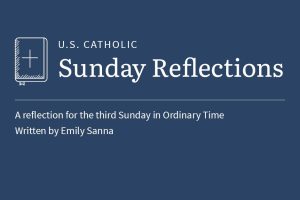If you don't understand that, you're gonna love the new, old Latin Mass.
The old German pastor of my first parish, Father Albert Henkel, was marked by both an endearing character-affectionately calling all us servers by our "real" name, George-and an almost indomitable resistance to change. When the liturgical reforms of Vatican II rolled around, the only new addition to the church was a plywood altar finished in family-room paneling, a reflection of Father Henkel's belief that the "old" liturgy would soon return.
My pastor's reaction seems to have been on the mark. For months now the Vatican has been-depending on your point of view-either promising or threatening to permit individual parish priests to celebrate at their discretion the so-called "Tridentine" liturgy, so named because it was mandated after the Council of Trent. A near-unanimous vote by the bishops at the Second Vatican Council ordered a reform of that liturgy, calling in the Constitution on the Sacred Liturgy for a renewal guided by the principle of "full and active participation" of all the baptized as its "paramount concern."
That charge dramatically restored variety to a liturgy that had for 400 years remained almost unchanged. In the 40 years since, the people of God have embraced praying in their own languages, singing their own music, and taking on roles once reserved to clergy. Though it has had its share of bumps, the reform of the liturgy by most accounts has been a magnificent success.
But there is an oft-forgotten passage in the liturgy document that proved prophetic. The bishops warned that there was "no hope of achieving this [reform] unless pastors themselves…become fully imbued with the spirit and power of the liturgy and attain competence in it." First among the resisters of reform was the late Swiss Archbishop Marcel Lefebvre, who led his followers into schism in 1988. Others stayed to push for restoration, and under Pope John Paul II they won a dispensation to celebrate the suppressed liturgy of Trent with permission from the local bishop.
Others worked for restrictions on the "new" liturgy, successfully opposing lectionary translations that used inclusive language and an improved translation of the prayers used for Mass, both approved by super-majorities of all the world's English-speaking bishops' conferences. Now a special commission of cardinals called Vox Clara, a who's who of prominent conservatives, oversees the translation of the liturgy into English, despite the council's explicit directive that the conferences of bishops should do so. For this reason English-speaking Catholics will soon be responding "And with your spirit" to "The Lord be with you," even though it makes no sense in modern English.
All of this may seem like too much conspiracy-though I am barely touching the highlights-and some may wonder what all the fuss is about. Indeed, the National Catholic Reporter's John Allen recently argued in The New York Times that the return of the Tridentine liturgy is really no big deal, wryly commenting, "If only we could convince the activists to slug it out in Latin, leaving the rest of us blissfully oblivious, then we might have something."
But any good liturgist will tell you that the ancient saying lex orandi, lex credendi-the prayer of the church is the source of its faith-applies here. Trent's liturgy wasn't just a way of celebrating the Lord's Supper. It embodied a particular way of being church: an all-powerful clergy mediating between God and a silent, sinful laity; a church frozen in time, untouched by the world around it.
The liturgy of Vatican II no less embodies a way of being church, one rooted in the cultures of God's people, one engaged in the "joys and hope, the grief and anguish" of the world, one that requires the gifts of every baptized person. It should be no surprise, for example, that liberation theology arose after Vatican II. Once the poor found their voice in the liturgy, they were sure also to find it in theology as well.
Proponents of the old liturgy, who reside mostly in the Roman curia rather than in churches with actual people, argue that there is a popular groundswell in its favor, a judgment based on nothing but anecdote. What is more likely is that they know the liturgy of Trent is a major step back toward the church of Trent, a fear expressed publicly by several prominent European bishops. Absent any actual pastoral need, I'd argue that's exactly what it is.
This article appeared in the August 2007 issue of U.S. Catholic (Vol. 72, No. 8, page 7).












Add comment